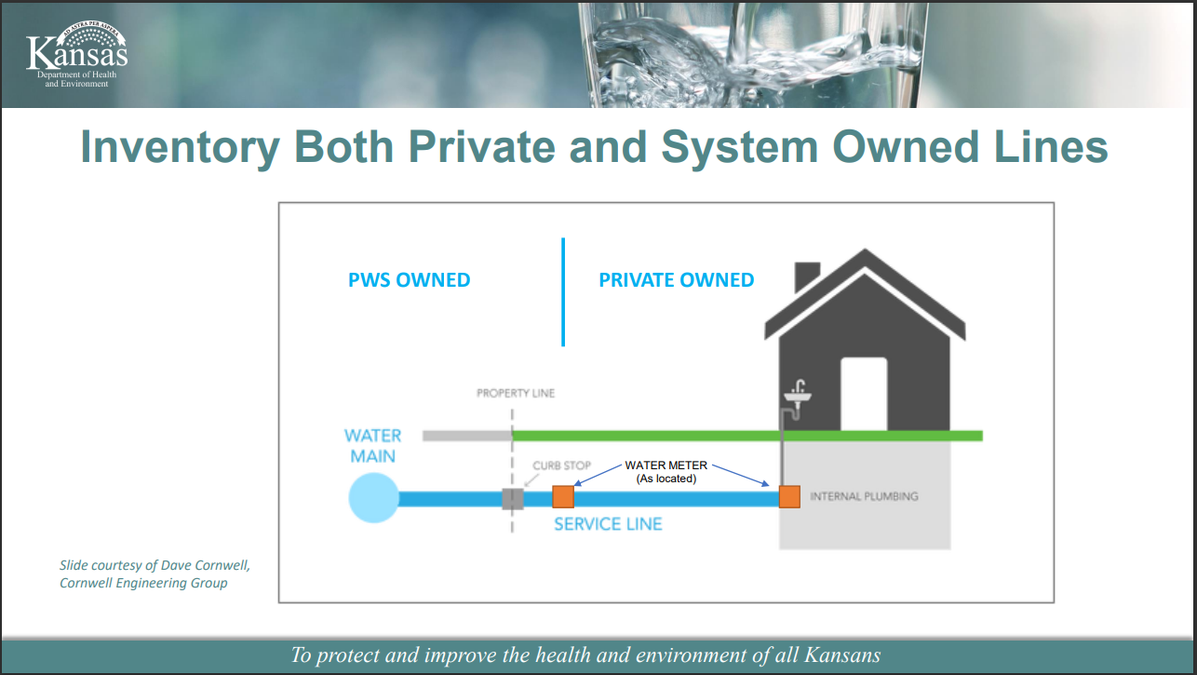New revisions to the lead and copper rule have been implemented nationwide and the City of Great Bend is required by the Environmental Protection Agency and Kansas Department of Health and Environment to survey its system for the presence of lead service lines, Public Works Director Jason Cauley said.
During a City Council work session Monday night, he said this mandate requires all cities to inventory — and ultimately replace — all lead pipes.
“It’s a lot of data acquisition,” he said. They will also reach out to property owners and contractors to get feedback to help fill out inventory.
“I don’t think we have as much lead here as they do in other communities,” Cauley said, noting Great Bend stopped using lead plumbing in the 1980s. City staff has already started its survey work.
The deadline is the fall of next year, but many of the rules remain unclear, he said. This involves city-maintained lines as well as those that are normally the responsibility of the property owner.
Some of the requirements include:
• For this lead and copper survey, the Kansas Department of Health and Environment has provided an Excel sheet to fill out as the city assesses the system that will be turned into the state.
• The survey is to include public water service lines and customer lines up to the foundation wall.
• The inventory must include all service lines connected to the public water supply distribution system regardless of ownership status (including city- and consumer-owned). The inventory must be made available for public review.
• The EPA has set a deadline of Oct. 16, 2024.
Cauley said the city has begun its survey through visualization and data mining by looking through current maps and records. Any time there is a disruption to the system either through main break, excavation for service or any other time that the lines are exposed, they are assessed and added to the spreadsheet.
The city has developed a customer survey to send out and ask for customer feedback. Officials are planning to release publications through the city website and social media.
Further, they have been contact with contractors to provide services that would assist in the development of the inventory.
As the survey dictates, the city will come up with plans to replace lines. This includes those that are the property owner’s responsibility.
“Customer lines are to be replaced if found to be lead,” he said. “If customer refuses, it goes against the water system, so the city needs to incentivize in some manner to encourage customers to replace lines.”
There may or may not be funds available to help homeowners with needed replacements, he said.
As for punishment, Cauley that hasn’t been ironed out yet. It could include fines levied per each day the city is out of compliance.
However, Cauley said the regulations are “a moving target.” The rules could change, as could the deadline.
There is the chance they city could hire seasonal help to work on the data collection, he said.





